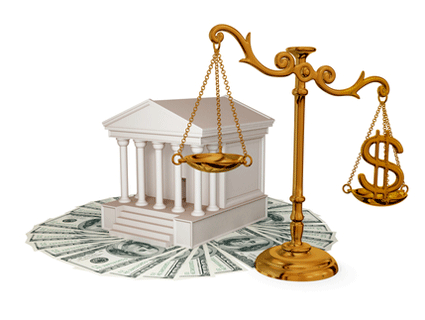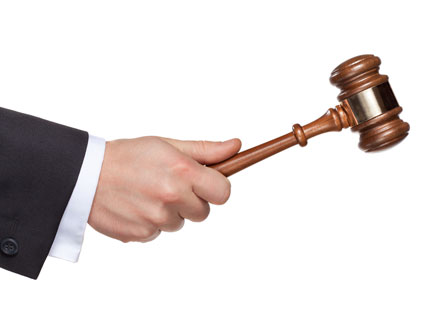
<a href="http://shutterstock.com">3Dstock</a>Shutterstock
It’s not exactly front-page news that money from business groups have a big influence in judicial elections these days. State supreme court elections have become more contested, more nasty and much more expensive over the past decade as business groups have sought to make state courts more friendly to industry. But a new report from the American Constitution Society, a liberal legal organization, shows a few interesting developments in how all this money in judicial elections is playing out.
The study found the obvious correlation between campaign contributions from businesses and business-friendly judicial decisions. A judge who got a quarter of her contributions from business could be expected to cast pro-business votes in 62 percent of the cases that come before her. But here’s the rub: after crunching the data, the study’s authors found that large campaign contributions from business interests had a bigger impact on Democrats’ decisions than they did on Republicans’—a sign, perhaps that corporate America is wasting its money on GOP judicial candidates who are already pro-business to begin with.
In judicial elections, the most highly contested and expensive races in 2010 and 2012 came in partisan elections, and the money tended to come largely from two groups: business interests and other lawyers, typically trial lawyers. (Union money, interestingly, is almost nowhere to be found in judicial elections.) But the trial lawyers’ contributions, which in the late 1980s were the impetus for the business community to get involved in judicial elections in the first place, now pale by comparison to what industry spends. The ACS study found that business groups’ spending on TV advertising dwarfed that of interests on the other side. Business groups spent $1.68 for every $1 they donated to an actual campaign, whereas for every $1 that lawyers and lobbyists gave to a judicial candidate’s campaign, they spent a mere 26 cents on critical TV ads.
Another thing stands out in the new study’s findings: Not all elections are created equal, and the report offers a way to end the potential threat of campaign money to an independent judiciary. In states where a governor appoints a state supreme court justice who then stands every few years for a nonpartisan retention election—an up or down vote on the fate of the single judge—ACS found that there was very little campaign money involved in the races. Justices in retention elections raised 40 times less money than those facing partisan elections, and there was no relationship between contributions to retained judges and their voting patterns. Only nine states elect their judges in partisan elections (almost all of them in the South or other poor states like West Virginia and Michigan), and they’ve been the primary battlegrounds for deep-pocketed interests groups. If those states switched to retention elections and merit appointments, the judicial election arms race would mostly come to an end.















